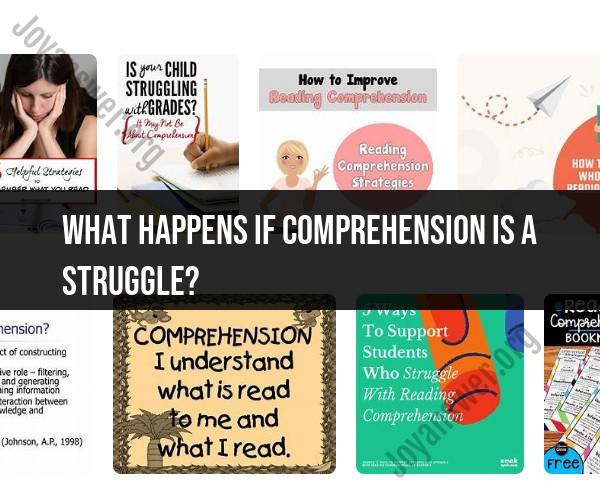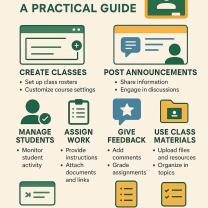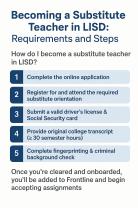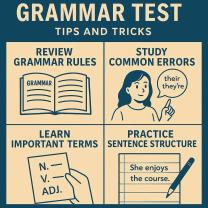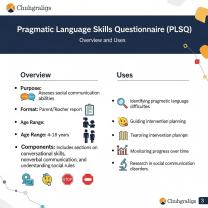What happens if comprehension is a struggle?
If comprehension is a struggle for a student, whether in reading, listening, or any other context, it's important to address this challenge promptly and effectively. Comprehension difficulties can impact a student's academic performance and overall learning experience. Here are some strategies and steps to consider when dealing with comprehension struggles:
Identify the Root Cause:
- Determine the specific nature of the comprehension difficulty. Is it related to reading comprehension, understanding spoken language, grasping complex concepts, or something else? Identifying the root cause is essential for developing targeted interventions.
Assess the Student:
- Conduct assessments or evaluations to gauge the student's current comprehension level. This might include standardized tests, teacher-created assessments, or observations.
Differentiated Instruction:
- Tailor your teaching approach to the student's needs. Use differentiated instruction techniques to provide multiple avenues for learning, such as visual aids, hands-on activities, and verbal explanations.
Explicit Instruction:
- Provide explicit instruction and modeling. Break down complex information into smaller, more manageable chunks, and guide the student through the learning process step by step.
Vocabulary Development:
- Focus on building the student's vocabulary. Comprehension often relies on a strong grasp of language and vocabulary. Teach new words in context and encourage reading to expand vocabulary.
Active Reading Strategies:
- Teach active reading strategies such as summarization, asking questions, making predictions, and visualizing. These techniques help students engage with the text and enhance comprehension.
Listening Skills:
- If the struggle is with listening comprehension, practice active listening skills. Encourage the student to ask for clarification when needed and to summarize what they've heard.
Visual Supports:
- Use visual aids, graphic organizers, and charts to help students organize and visualize information. Visual supports can make abstract concepts more concrete.
Technology and Multimedia:
- Incorporate technology and multimedia resources that cater to different learning styles. Videos, interactive simulations, and audiobooks can complement traditional teaching methods.
Reading Comprehension Strategies:
- Teach specific reading comprehension strategies, such as making inferences, identifying the main idea, and recognizing cause-and-effect relationships.
Provide Feedback and Reinforcement:
- Offer constructive feedback on the student's work and comprehension skills. Recognize their progress and provide positive reinforcement to boost confidence.
Small-Group or One-on-One Support:
- Some students may benefit from small-group or one-on-one support sessions with a teacher, tutor, or specialist who can provide personalized guidance and practice.
Parental Involvement:
- Involve parents or caregivers in the process. Share strategies and techniques they can use at home to support the student's comprehension development.
Consider Learning Disabilities:
- If comprehension difficulties persist despite interventions, consider the possibility of a learning disability. Consult with educational specialists or psychologists for a comprehensive assessment.
Continual Monitoring:
- Continually monitor the student's progress and adjust teaching strategies as needed. Comprehension improvement may be gradual, so patience and persistence are key.
Remember that each student is unique, and what works for one may not work for another. Flexibility in teaching approaches and a willingness to adapt to the student's changing needs are crucial. Additionally, maintaining open communication with the student and involving them in setting comprehension goals can help motivate them to overcome their struggles.
